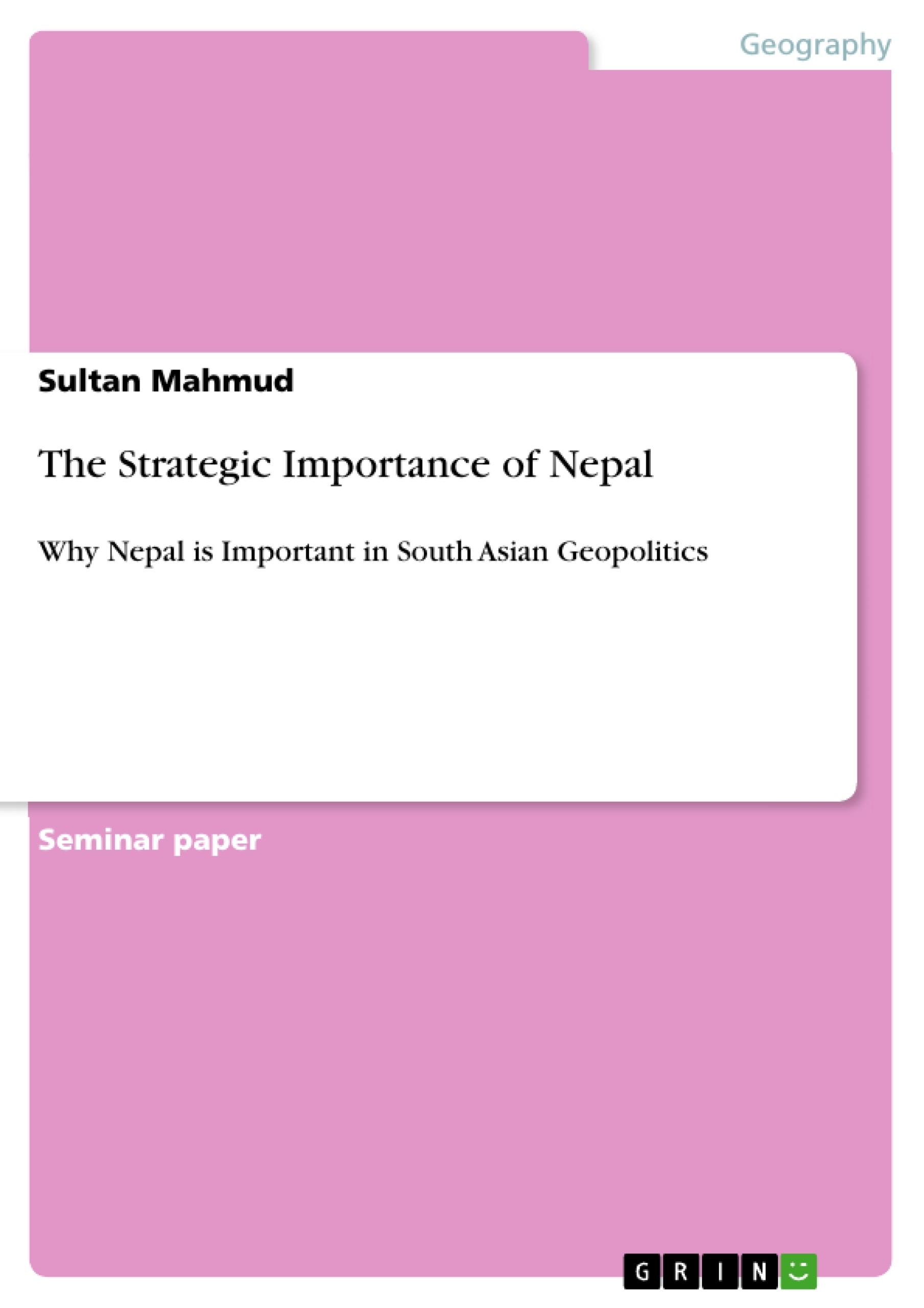Nepal is a one of the landlocked countries in the world. It has no access to the sea and it needs to deal with its neighboring countries for many issues. Geopolitically Nepal has drawn much more attention for its natural beauty of the Himalayas and landlocked reality that make it to compromise with its neighbors for its own economic and strategic interests. Determinants and the capability to reverse those to geo-strategy influence one's foreign policy. Having the Himalayas, river belts and strategic boundary and road links, Nepal has some positive and influential determinants. They can formulate effective foreign policy by using the realities properly as it is strategically, politically and economically important in this region especially to China and India. Stability and effective control of this land is geopolitically influential for two great power neighbors. Here we look on the factors that determine Nepal foreign policy and managing its foreign relations with its neighboring countries and in the international arena.
Inhaltsverzeichnis (Table of Contents)
- Introduction
- Determinants that impact on Foreign Policy
- Size
- Territorial Depth
- Geographic Location
- National Character and Geo-Demography
- Boundaries and Road links
- Natural Resources
- Capabilities shaping Foreign Policy
- Economic Capability
- Military Capability*
- Geo-Strategic Position
Zielsetzung und Themenschwerpunkte (Objectives and Key Themes)
This work examines the determinants and capabilities that shape Nepal's foreign policy. It explores how Nepal's unique geographic location, natural resources, and national character influence its relationships with its neighbors, primarily India and China.
- Geopolitical Determinants of Nepal's Foreign Policy
- Impact of Size, Territorial Depth, and Geographic Location
- Influence of National Character and Geo-Demography
- The Role of Boundaries, Road Links, and Natural Resources
- Capabilities Shaping Nepal's Foreign Policy
Zusammenfassung der Kapitel (Chapter Summaries)
The first chapter introduces Nepal's landlocked reality and its strategic importance in the region, highlighting the need to manage relations with neighboring countries. The following sections delve into the determinants of Nepal's foreign policy, analyzing factors such as size, territorial depth, geographic location, national character, and natural resources. These sections examine how these determinants influence Nepal's geopolitical reality and its foreign policy choices. The final chapter discusses Nepal's capabilities in shaping its foreign policy, focusing on economic, military, and geo-strategic aspects. It explores how Nepal can leverage its capabilities to achieve its foreign policy goals and enhance its position in the international arena.
Schlüsselwörter (Keywords)
Nepal's foreign policy, geopolitical determinants, landlocked country, India, China, strategic importance, geo-strategy, capabilities, economic development, military capacity, territorial sovereignty, regional relations, Himalayan region, South Asia.
Frequently Asked Questions
What are the main determinants of Nepal's foreign policy?
Nepal's foreign policy is primarily determined by its geographic location, size, territorial depth, national character, and its status as a landlocked country between two major powers, India and China.
How does being landlocked affect Nepal's economic interests?
As a landlocked nation, Nepal must constantly negotiate with its neighbors for transit rights and sea access, which forces it to balance its strategic and economic interests carefully.
What role do the Himalayas play in Nepal's geopolitics?
The Himalayas serve as a natural boundary and a strategic asset, influencing both Nepal's security concerns and its potential for tourism and natural resource management.
How does Nepal manage its relations with India and China?
Nepal utilizes its geo-strategic position to formulate an effective foreign policy that seeks stability and economic development while maintaining territorial sovereignty between these two influential neighbors.
What capabilities shape Nepal's international standing?
Nepal's international standing is shaped by its economic capability, military capacity, and its unique geo-strategic position in South Asia.
- Quote paper
- Sultan Mahmud (Author), 2018, The Strategic Importance of Nepal, Munich, GRIN Verlag, https://www.grin.com/document/444513



